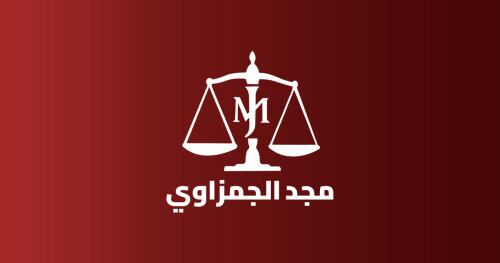Best Native People Lawyers in Amman
Share your needs with us, get contacted by law firms.
Free. Takes 2 min.
List of the best lawyers in Amman, Hashemite Kingdom of Jordan

About Native People Law in Amman, Hashemite Kingdom of Jordan
The laws in Amman, Jordan, regarding Native People, are mainly originated from general Jordanian legislation with specific provisions to support the local populace. There isn't a separate legal framework for native residents. These laws aim at a wide spectrum of matters, encompassing civil rights, property rights, and equality issues.
Why You May Need a Lawyer
You may need a lawyer when dealing with judicial rulings or regulations that directly interact with your rights as a native resident in Amman. Scenarios can include contention over land rights, disagreements about local customs and traditions, or seeking to advocate for better recognition or preservation of local values and heritage. Legal help may also be necessary if you believe your civil rights have been violated or if disputes over property or inheritance arise.
Local Laws Overview
In Jordan, the Constitution is the supreme law, ensuring equal rights and freedom for every citizen. Additional legislation like the Civil Rights Law and the Penal Code further protect individuals. Crucial local laws that are particularly relevant for Native People in Amman are those concerning heritage conservation, land ownership and dispute resolutions, social benefits, and education. Some tribal laws and customs also hold significant implications in specific situations.
Frequently Asked Questions
1. What rights do local natives have in Amman, Jordan?
Local natives possess the same rights as any other Jordanian citizen. They enjoy the basic human rights, making them entitled to justice, voting, safety, equality, etc., as per the Constitution of Jordan.
2. What protection exists for native people's heritage and culture?
The Department of Antiquities in Jordan has various initiatives focused on preservation and protection of local heritage and culture. Local customs and traditions are also respected and recognised by local and national laws.
3. How does a native resident address land or property disputes?
If a native resident encounters any land or property disputes, they can seek help from a lawyer who specialises in Jordanian property law. Resolutions are typically handled through the Jordanian court system.
4. Are there any support programs for native people?
Governmental and non-governmental organisations in Jordan have various support programs aimed at social, economic, and educational betterment of native people in Amman.
5. What is the role of tribal laws in Amman?
Although the overall judicial framework of Jordan is influenced by modern law, tribal laws continue to possess significant importance in specific situations and areas, particularly in resolving certain disputes and maintaining peace and order within tribes.
Additional Resources
Helpful resources include Ministry of Justice, Jordan; Jordan’s Department of Antiquities; Ministry of Social Development, and various non-government organizations dedicated to cultural preservation and advocacy. Legal advice can be sought from law firms with expertise in Jordanian Law.
Next Steps
Should you require legal assistance related to being a native resident in Amman, it's advised to contact a lawyer familiar with the local and national laws of Jordan. Many law firms offer initial consultations to discuss your circumstances and assess your needs. Also, don’t forget to utilize the government bodies and organizations designed to aid and protect you.
Lawzana helps you find the best lawyers and law firms in Amman through a curated and pre-screened list of qualified legal professionals. Our platform offers rankings and detailed profiles of attorneys and law firms, allowing you to compare based on practice areas, including Native People, experience, and client feedback.
Each profile includes a description of the firm's areas of practice, client reviews, team members and partners, year of establishment, spoken languages, office locations, contact information, social media presence, and any published articles or resources. Most firms on our platform speak English and are experienced in both local and international legal matters.
Get a quote from top-rated law firms in Amman, Hashemite Kingdom of Jordan — quickly, securely, and without unnecessary hassle.
Disclaimer:
The information provided on this page is for general informational purposes only and does not constitute legal advice. While we strive to ensure the accuracy and relevance of the content, legal information may change over time, and interpretations of the law can vary. You should always consult with a qualified legal professional for advice specific to your situation.
We disclaim all liability for actions taken or not taken based on the content of this page. If you believe any information is incorrect or outdated, please contact us, and we will review and update it where appropriate.














